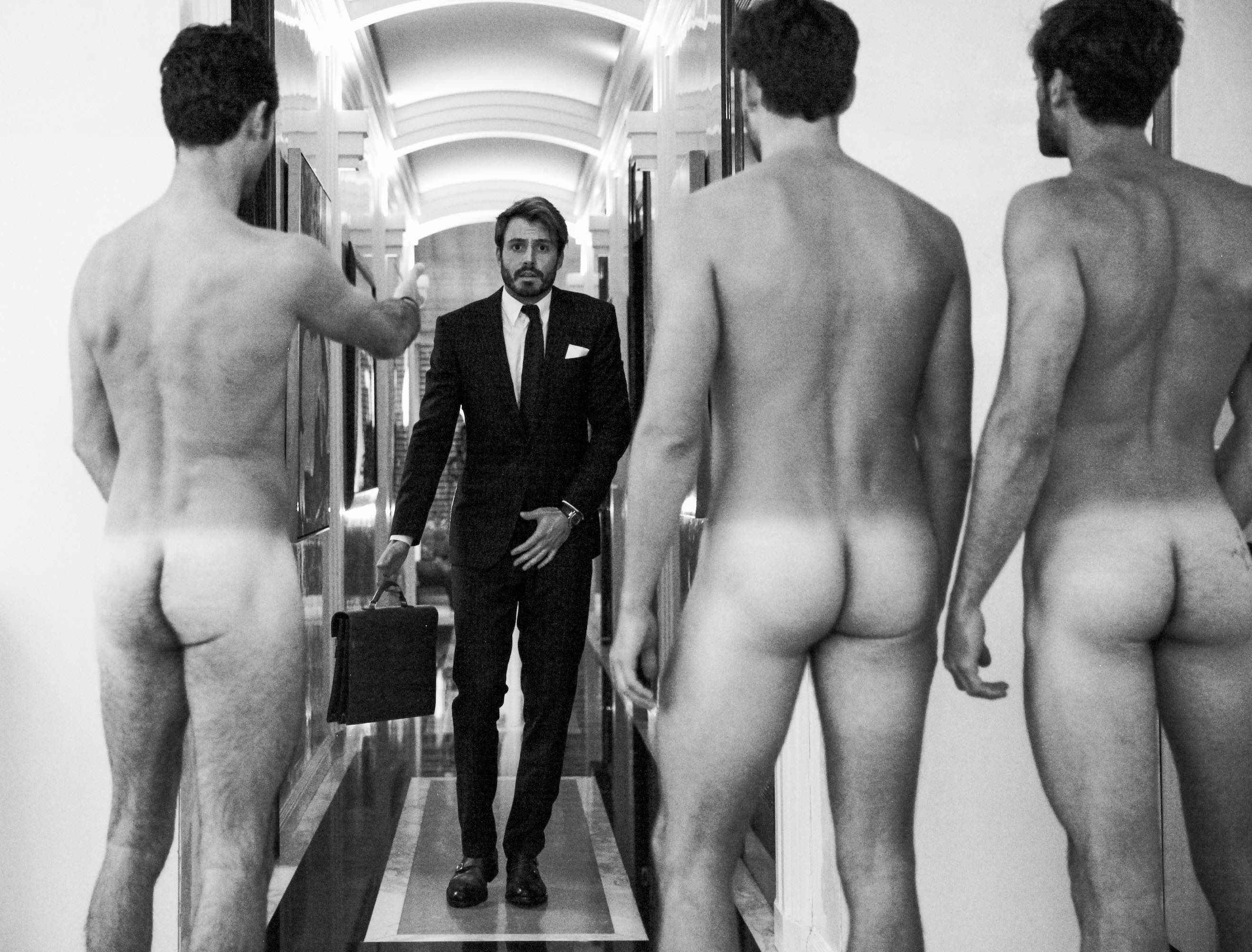2017
Signed, dated, titled verso
Silver gelatin print in artist’s frame or mounted on aluminium
105 x 80 cm
Edition of 3 plus 2 artist’s proofs
One of the goals of psychological development is to achieve the right balance between independence and belonging to a group. Living in a community in a healthy way is not a simple task, and it is fundamental that the individual is able to form a social identity. The “Id” as individuality grows in parallels with a multifaceted “we” that comes in a variety of shapes and sizes.
A famous proverb says that: “the suit doesn’t make the man!” But is this really true? Studies have shown how the way we dress influences our behavior and that of others. Clothing conditions, categorizes, judges and accepts. We do not only think with our brains, but also with our bodies. This phenomenon is known as “enclothed cognition”. The way we dress speaks volume about us, even before we utter a word: it conveys certain aspects of our personality, our needs and our state of mind.
In an individualistic world where the “I” comes before the “us”, being accepted and feeling at ease in any kind of situation is key to success in life.
But who decides the rules?
The photograph Naked symbolizes the subtlest of paradoxes. The suit does not make the man, but rather society does. Society is like a skilled tailor that sews customs and trends and imposes role models for us to aspire to. We are so used to this we do not even realize what is imposed on us. We take it for granted.
Old popular texts, ancient Greek, Latin and even Egyptian scriptures passed on from one generation to the next the message that social order is based entirely on a balance of power, which makes things seem logical when, in a different reference system of good versus bad they would be deemed as absurd. This leads to the birth of the myth of the topsy-turvy world, where the rich beg from the poor, fishes fly, sheep shear the shepherds and so on. This constitutes a world of forces against nature, where the expectation of a social revolution mounts.
In one of Fiore’s most eccentric and inspired works, he brings together popular utopia and classical myths, and tells the story of one of the most common aims of our civilization. The aspiration to recreate the world to give it a new and different order, and he makes us understand that it does not matter how well dressed you are or how desperately you try to fit in and conform to imposed and silent rules and obligations. It’s all a question of perspective. The rules have changed in such a way that everyone can live a “back to front life” in a world that’s been turned upside down. Everything is relative after all, and if the world has changed its attitude, then what is “normal” feels “strange”, and what is “dressed” seems “naked”.
.



